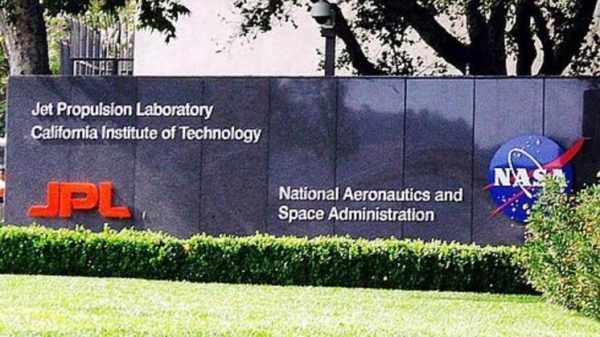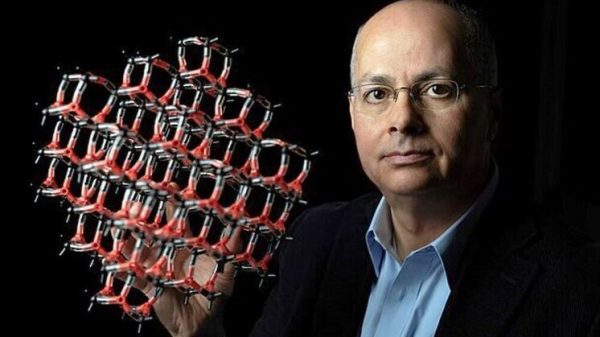 Nicole Kidman in Roar, Tobias Menzies in The Hunt and Meryl Streep in Extrapolations
Nicole Kidman in Roar, Tobias Menzies in The Hunt and Meryl Streep in Extrapolations
Apple TV& #43; We're having a busy March. Ridley Scott's Napoleon comes into service with Joaquin Phoenix as the great man. There's a new Kristen Wiig comedy, Palm Royale, about Palm Beach society in the late 1960s. And then there's The Hunt, a show that could only come to Apple TV, where Tobias Menzies plays Edwin Stanton, Abraham Lincoln's Secretary of War, trying to track down the assassin of former President John Wilkes Booth.
It follows the February release of Martin Scorsese's Oscar-nominated-but-no-win «Killers of the Flower Moon,» a film that grossed $137 million on a $200 million budget. For most studios, this would be a moment of deep sigh. But in early February, following the results of the first quarter, Apple reported that revenue was $119.6 billion, which is 2 percent more than last year. He has $162 billion in the bank. Its value is currently estimated at $2.7 trillion. It can absorb pain.
The question Hollywood keeps asking is: why would it be? The company makes so much money from its other businesses that getting into television seems like an unusual diversification. Apple is in a peculiar place right now. On the one hand, Apple TV+ excels in what GQ recently called Prestige Dad TV. The projects of Steven Spielberg, Tom Hanks, Martin Scorsese, Michael Douglas, Gary Oldman, Idris Elba, Ridley Scott, Matthew Vaughn, Samuel L. Jackson, Brad Pitt and George Clooney are working here. Stars and creatives are lining up to work with them, as they did with HBO in the 2010s. It's a safe, hassle-free and highly profitable home for their latest passion projects.
The company spends $1 billion annually on theatrical films and $6.5 billion on television productions. The budget for the first season of the smart sci-fi series Foundation was $45 million — about the same as the BBC's most expensive TV show to date, His Dark Materials, but a pittance compared to the $15 million per episode of The Morning Show. Apple also buys projects that others can no longer afford. Airbenders had been in development at HBO since 2013, but Apple acquired it in 2019 when HBO balked at the $250 million price tag.

This year we can expect: Michael Douglas starring in Franklin, a sumptuous historical drama about Benjamin Franklin trying to convince France. recognize the newly independent USA; Cate Blanchett, Kevin Kline and Sacha Baron Cohen in the thriller written and directed by Gravity's Alfonso Cuaron; “Sugar,” a “genre-bending” private eye mystery starring Colin Farrell; and Presumed Innocent, a legal drama starring Jake Gyllenhaal. And these are just a few of them.
On the other hand, not that many people are watching. While Apple has not released an official subscriber count since 2019, estimates of its UK base hover around two million compared to Netflix's 16.3 million, and in the US there are 15-20 million compared to Netflix's 80 million. Only Ted Lasso and Idris Elba's «Hijack» has consistently ranked in the U.S. streamer's Nielsen ratings, despite having an episode of The Morning Show's third season last October. Apple doesn't publish UK viewing data.
There's also the issue of brand awareness, as evidenced by a 2023 survey conducted by industry insider site Puck. It turned out that 20 percent of viewers who watched Ted Lasso had no idea who actually did it.
 Jason Sudeikis and Hannah Waddingham in Ted Lasso's Apple hit
Jason Sudeikis and Hannah Waddingham in Ted Lasso's Apple hit
It's not because they make terrible shows. Slow Horses, starring Gary Oldman in a career-best performance, was praised by critics, as was the Tom Hanks-set World War II spectacle The Beasts of the Air. Series like Bad Sisters, For All Mankind, and Severance are some of the best TV shows of our time. However, despite their quality, the vast majority of Apple TV games fall short of the times.
Remember Nicole Kidman's Roar? Tom Hanks writes and stars in Greyhound, a movie about a Navy commander tasked with protecting Allied ships from German submarines? How about Crowded Room with Tom Holland — Spider-Man himself — as a patient with multiple personality disorder? Or Tom Hiddleston in the literary thriller The Essex Serpent? Meryl Streep plays a whale in futuristic eco-sermon Extrapolation? I thought not. What about Uma Thurman's thriller Suspicion? It was canceled after the first season because no one came. Meanwhile, Patricia Arquette's High Desert was killed just days after airing.
“The viewing percentage of movies and shows on Apple TV, even with their smaller size as a streamer, is simply not great,” says Hollywood blogger and former streamer analyst Entertainment Strategy Guy. “They had the most misses of any streamer on my tracker in the second half of the year, and the size of their hits just didn't make up for it. Even when they have hits, in many cases these shows are co-productions with established studios such as Ted Lasso. My old-fashioned position is that making money is a sign of success.
 Uma Thurman in the now-canceled Apple thriller Suspicion Photo: Robert Wiglaski
Uma Thurman in the now-canceled Apple thriller Suspicion Photo: Robert Wiglaski
“Losing money—even if a big company can afford it—does not make it a good strategy. It simply means that the company can afford it, which is not the same thing. I believe they had a better 2023 than 2022, but I still suspect they lost a lot more than they made.»
This may be a classic streamer strategy — launch a high-end offering and then reduce quality as you grow. It's in television's DNA for obvious reasons, says Alan Wolk, co-founder of New York-based analytics firm TVREV.
“In the early days of television, 60-odd years ago, NBC could afford such expensive television as Judgment at Nuremberg for the simple reason that only rich, educated people could afford televisions,” he explains. “It’s the same thing with the early days of streaming: wealthy, educated audiences loved House of Cards.” But the main audience does not like such programs. At one point, Netflix gave the famous advice: “stop making snobby shows that no one wants to watch.”
 < p>But Apple TV+ This is not a simple streamer. “Apple is a phone company, and its growth was by selling iPhones, more iPhones, and then raising prices for iPhones, until a couple of years ago when the company realized that the richest billion people in the world had iPhones,” explains Tom Harrington, Apple analyst. Enders' analysis. “They've maxed out and have to look elsewhere for growth, so their next big move is how do we monetize that base? They decided that it was about providing services to this billion.”
< p>But Apple TV+ This is not a simple streamer. “Apple is a phone company, and its growth was by selling iPhones, more iPhones, and then raising prices for iPhones, until a couple of years ago when the company realized that the richest billion people in the world had iPhones,” explains Tom Harrington, Apple analyst. Enders' analysis. “They've maxed out and have to look elsewhere for growth, so their next big move is how do we monetize that base? They decided that it was about providing services to this billion.”
At its launch in 2019, CEO Tim Cook said its intention was to «bring together hardware and software»—software here includes TV programming. The following year, Apple launched Apple One, a single subscription to Apple Music, Apple News, Apple Arcade or Apple TV costing £18.95 per month. Apple TV+ costs £8.99, Apple Music £10.99… you get the idea. According to Puck's Julia Alexander, Apple's hardware gross margin is just over 34% and its service business margin is 70.5%.
“Apple's strategy with Apple TV+ has a dual meaning, and sometimes people try to focus on one side or the other,” says Ent Strat Guy. “On the one hand, with valuable subscriptions like TV, music or games, the goal is to sell more iPhones. iPhone and iPad sales have been slowing for years and customers are holding their phones longer, so the second goal is to generate subscription revenue. I would argue that this point is more important than selling more phones because it allows them to leverage their market dominance to generate sustainable revenue.»
 Tom Hanks in the movie «Greyhound»
Tom Hanks in the movie «Greyhound»
On phones and tablets. Apple TV+ available in the Apple TV app. This also includes Prime Video, Disney+, ITVX, Now, Paramount+ and BFI Player, as well as renting and purchasing films on iTunes. Apple reportedly gets 30 percent of any subscription fees paid to other streamers if they click through the Apple TV app, but Apple TV+ is exclusive content, a retention strategy, a reason to stay with Apple and Apple One. For this to work, the streamer must have enough good content for people to want to stick with it.
“I don’t know if they fully understood what they wanted to do with television,” Wolk says. “It’s a bit of a mystery,” agrees Harrington. “They don't really license the content that much. Their commissioning process is slower than everyone else's. They approach content like a technology company that polishes it to perfection, rather than the TV model where you throw out a bunch of stuff and sometimes it works.
So now they get rewards, but they don't have the volume to become a destination and they can't use the few hits they have. Ted Lasso was a hit, but did people sign up to watch it and then look for other content? Not really.”
Barclays analyst Tim Long believes that Apple TV+ generates two percent of Apple's services revenue; the company has the financial freedom to test and learn. But Apple executives will at some point have to explain to Wall Street why they continue to invest in expensive premium content even though Scorsese's $250 million bet didn't even net an Oscar.




















































Свежие комментарии